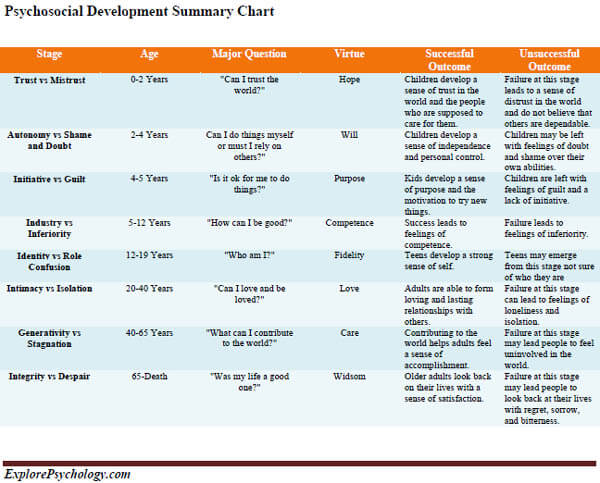ENTJ Personality Traits: Key Traits, Strengths, and Weaknesses
Bold, driven, and natural-born leaders, ENTJs bring energy and ambition to every challenge. Discover the key traits that set this powerhouse personality apart.

Have you ever met someone who seems born to lead? The kind of person who walks into a room and naturally takes charge, armed with a clear vision and an unwavering drive to achieve goals? If so, you might have encountered a person with ENTJ personality traits–often called “The Commander” or “The Executive” in Myers-Briggs (MBTI) terminology.
ENTJs make up only about 2% of the population, but their impact often far exceeds their numbers. This personality type has shaped organizations and movements from military leaders to CEOs throughout history. But what exactly makes an ENTJ tick?
In this article, we’ll explore the fascinating world of ENTJ personalities. Whether you’re an ENTJ looking to understand yourself better, or someone trying to work more effectively with ENTJs in your life, you’ll discover the unique traits, strengths, and challenges that define this dynamic personality type.
Core ENTJ Personality Traits
Let’s examine the core ENTJ personality traits that make up this personality.
Extroversion:
Extroversion defines their energy source. ENTJs thrive on action and interaction, naturally gravitating toward leadership roles. They excel at directing teams and speaking up in groups.
- Natural leadership orientation
- Energized by social interaction
- Confident public speaking
- Action-oriented mindset
Intuition:
The Intuitive element shapes their perspective. ENTJs identify patterns and possibilities where others see random events. This trait fuels their strategic thinking and long-term planning abilities.
- Pattern recognition
- Future-focused thinking
- Strategic planning ability
- Big-picture perspective
Thinking:
Thinking reflects their analytical approach. ENTJs evaluate situations through a logical lens, prioritizing data and facts over emotional responses. This enables clear decision-making, though it can seem like detachment to others.
- Logical decision-making
- Analytical problem-solving
- Objective reasoning
- Fact-based judgment
Judging:
The Judging trait drives their need for structure. ENTJs set concrete goals and create systematic plans to achieve them. They value efficiency and follow-through, treating deadlines as non-negotiable commitments.
- Structured approach
- Goal-oriented mindset
- Strong organizational skills
- Preference for closure
These four elements combine to create natural leaders who excel at strategic planning and execution.
Strengths of Having ENTJ Personality Traits
ENTJs bring powerful strengths to their academic and professional lives. Their natural leadership abilities shine through in group projects and team settings, where they excel at organizing resources and directing efforts toward clear goals.
Strategic planning helps set ENTJs apart. They tend to take complex challenges and break them down into actionable steps. They are also good at anticipating obstacles before they happen. This ability to create and execute long-term strategies means that they excel in roles that require a lot of vision and direction (aka leadership positions).
Efficiency defines their work style. ENTJs establish clear metrics for success and optimize processes to achieve results. They excel at:
- Setting ambitious but achievable goals
- Creating structured timelines
- Delegating tasks effectively
- Making quick, informed decisions
ENTJs’ decision-making prowess stems from their analytical nature. They gather relevant data, evaluate options objectively, and commit to choices with confidence. This skill proves especially valuable in leadership positions where decisive action matters.
These strengths position ENTJs for success in business management, consulting, and organizational leadership. However, their intense drive for achievement can create unique challenges.
Challenges of Having ENTJ Personality Traits
Despite their many strengths, people with ENTJ personality traits may face distinct challenges in their personal and professional lives.
Emotional intelligence often proves challenging. Their focus on logic and efficiency can overshadow others’ emotional needs. ENTJs might dismiss valid concerns as “irrational” or push team members too hard in pursuit of goals.
Stress management presents another hurdle. Their drive for perfection and achievement can lead to:
- Burnout from overwork
- Frustration with perceived inefficiency
- Difficulty delegating without micromanaging
- Impatience with slower-paced individuals
Relationships require particular attention. ENTJs may struggle to:
- Show vulnerability
- Express empathy
- Listen without problem-solving
- Accept different working styles
Perfectionist tendencies can also undermine their effectiveness. The constant pursuit of optimal solutions sometimes prevents ENTJs from accepting “good enough” outcomes, leading to unnecessary delays and team friction.
These challenges, while significant, can become growth opportunities with awareness and effort.
Making the Most of ENTJ Personality Traits
ENTJs can transform their potential challenges into strengths through focused personal development.
Building emotional awareness starts with active listening. People with ENTJ personality traits may benefit from:
- Practicing empathy in daily interactions
- Acknowledging others’ feelings before offering solutions
- Recognizing emotional intelligence as a valuable skill
Effective communication requires balance. Strong leaders:
- Adapt their style to different audiences
- Share credit for successes
- Welcome diverse perspectives
- Provide constructive feedback
Work-life balance improves through intentional choices:
- Setting boundaries between work and personal time
- Pursuing non-achievement-focused hobbies
- Taking regular breaks
- Delegating with trust
Personal growth strategies include:
- Seeking honest feedback from peers
- Working with mentors
- Reading about emotional intelligence
- Practicing mindfulness techniques
These development areas help ENTJs become more well-rounded leaders while maintaining their natural strengths.
Final Thoughts
ENTJs have a great deal of potential for leadership and achievement. Their strategic thinking, decisiveness, and drive for excellence make them natural commanders. Yet their greatest growth comes from balancing these strengths with emotional intelligence and self-awareness.
For ENTJs reading this article, remember that your determination to improve is itself a strength.
Focus on developing your emotional awareness while maintaining your natural leadership abilities. Seeking feedback from trusted colleagues and loved ones about your impact on others might be a great idea.
If you work with an ENTJ, it’s important to understand that their direct approach comes from a desire for efficiency and excellence. You can maintain a strong working relationship with clear communication and respect for their systematic approach.





